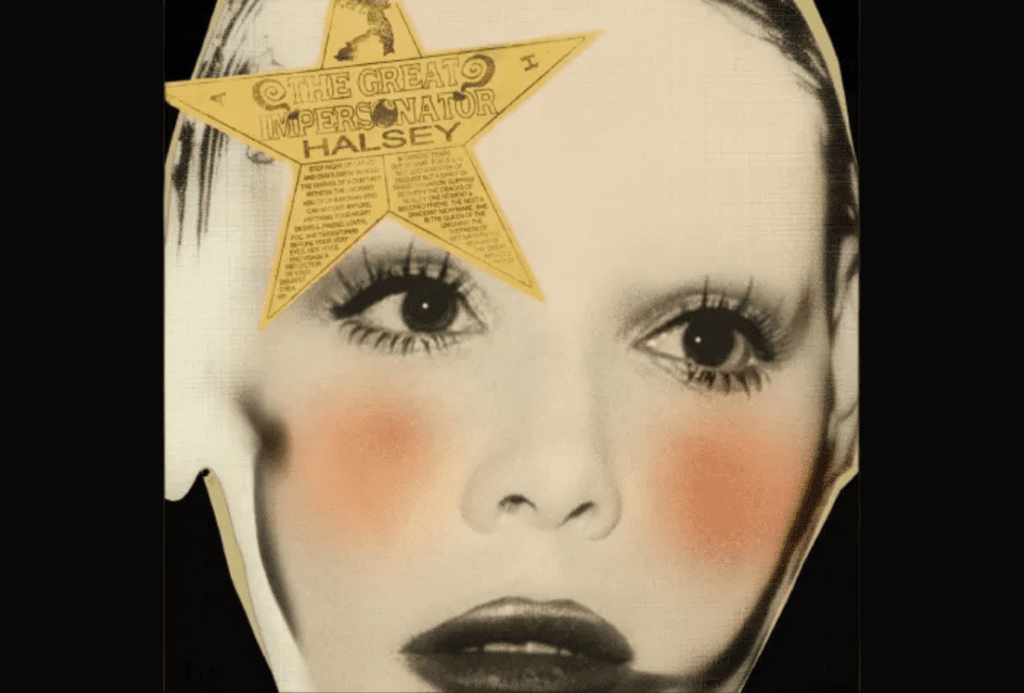
Halsey‘s latest release, The Great Impersonator, serves as both a homage and a personal exploration of identity, drawing inspiration from pop icons spanning several decades. This album, created during a challenging period marked by health struggles, including postpartum depression and T-cell lymphoproliferative disorder, reflects a sense of disconnection from self. To visually represent this idea, Halsey has shared a series of stylized photoshoots on social media, recreating well-known images of artists like Joni Mitchell, Stevie Nicks, and Fiona Apple, symbolizing her journey as a pop persona.
While the concept is visually appealing on platforms like Instagram, using it as a central theme for an album feels a bit predictable. Similar thematic approaches have been explored by artists like Taylor Swift and Chappell Roan, which somewhat dilutes the novelty of Halsey’s approach. Embracing iconic sounds from figures such as Björk and Fiona Apple seems ambitious but can feel more surface-level than substantive, leaving one to wonder if Halsey fully captured the essence of these influences. Her love for thematic albums is well-known, having created elaborate worlds for each of her records, ranging from a dystopian pop environment to one featuring collaborations that personify her inner psyche.
However, there remains a certain ambiguity in Halsey’s artistic identity. While she’s proven herself a master of crafting hit singles and maintaining a compelling stage presence, The Great Impersonator struggles to present a unified vision. At her best, Halsey fuses nostalgic and contemporary elements, blending past references into a modern pop setting. But at times, her attempts to depict pain and resilience through her lyrics come across as inaccessible, possibly distancing her from listeners who may find it hard to relate to her self-portrayal.
Halsey’s relationship with her public image is complex, and she has become a symbolic figure for fans who connect with her vulnerability and openness. However, her narratives sometimes seem overshadowed by an effort to uphold a tortured artist persona, potentially alienating some listeners. Songs like “Without Me,” a chart-topping reflection on past relationships, demonstrate her talent for lyrical precision and emotional impact, but her tendency to emphasize a sense of victimhood risks limiting her artistic appeal.
In The Great Impersonator, Halsey leans heavily into the solitary artist trope, especially on tracks like “Darwinism,” a Bowie-inspired song that has echoes of Radiohead, and “Dog Years,” influenced by PJ Harvey. These songs reflect her experiences, though the wordplay sometimes falls flat. To amplify the album’s impact, she has collaborated with producers Michael Uzowuru, Alex G, and others associated with Frank Ocean’s work on Endless and Blonde, clearly intending for the album to have the aura of an artistic milestone. Despite these efforts, some aspects of the production feel like an attempt to simulate greatness rather than truly embody it, with touches like studio chatter giving an impression of spontaneity.
Interestingly, some of the most compelling moments on The Great Impersonator arise when Halsey steps away from projecting an image and focuses on the personal realities of her life. “The End,” a Joni Mitchell-inspired track, imagines an apocalyptic scenario as a metaphor for her battle with illness. Three interludes, titled “Letter to God,” punctuate the album, capturing Halsey’s moments of introspection as she turns to spirituality for comfort. Though these tracks may not sound exactly like the artists they aim to emulate, they capture her emotions effectively, showcasing her struggles with faith and personal hardship.
Ultimately, The Great Impersonator presents Halsey’s response to her unique life experiences. Yet, by the album’s conclusion, listeners may still feel uncertain about Halsey’s artistic direction. Her attempt to channel past music icons only partially succeeds, and while her commentary on fame and identity is ambitious, it remains somewhat elusive. The album leaves an open question: does sharing personal struggles with the world, as Halsey has done here, suffice as a lasting artistic statement?


